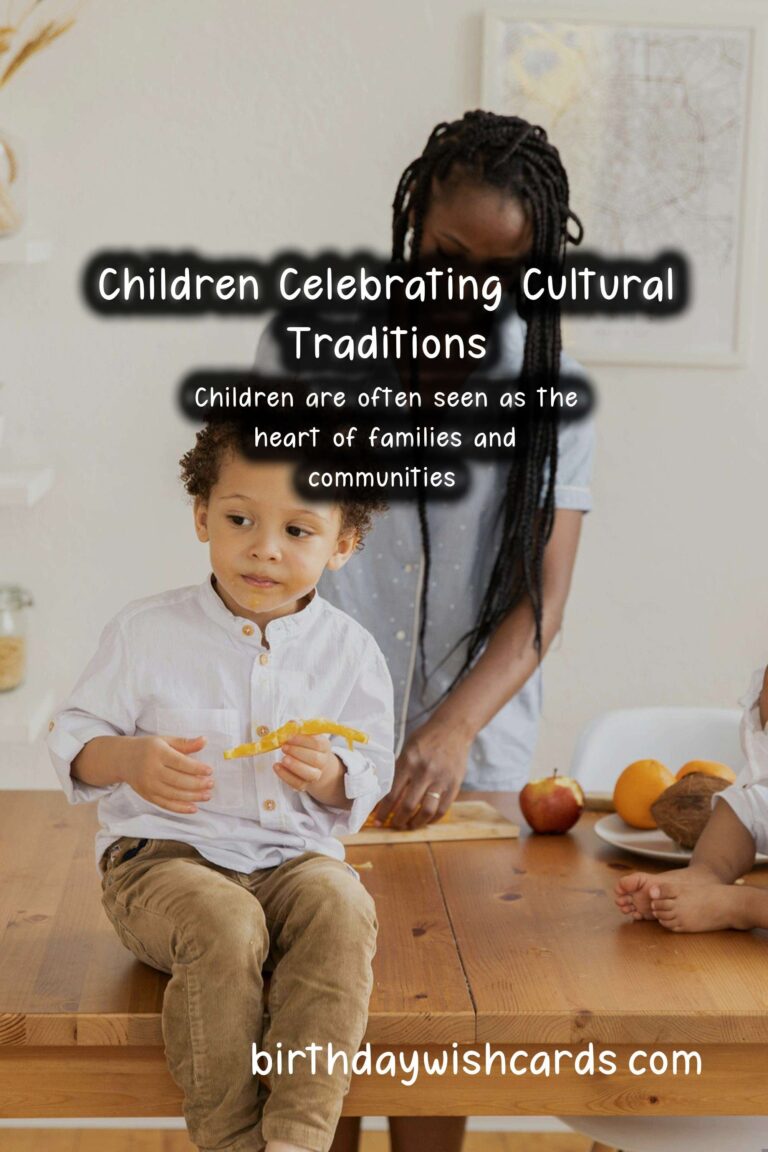
Children are often seen as the heart of families and communities, playing a crucial role in ensuring the continuity of culture and tradition. Their significance varies across different cultures, shaped by unique values, beliefs, and social structures. In this article, we will explore the importance of kids in various cultures around the world.
1. The Role of Children in Family Structure
In many cultures, children are considered the backbone of the family unit. They are not just seen as dependents but as valuable contributors to family life. In collectivist societies, such as those found in parts of Africa and Asia, children often bear the responsibility of caring for their elders. This duality of role nurtures a deep-rooted sense of respect and responsibility for family bonds.
2. Educational Values and Cultural Identity
Education is a key factor in the development of children and varies markedly across cultures. In Scandinavian countries, for instance, education is centered around creativity and critical thinking, promoting the idea that children learn best when engaged and happy. Conversely, in cultures with a strong emphasis on rote learning, such as in some Eastern countries, children are often pushed to excel academically from a young age, reflecting the culture’s value placed on education and success.
3. Spiritual and Religious Development
Many cultures integrate spiritual teachings into children’s lives at a young age. In Hindu culture, children are often introduced to religious practices early on, instilling values of respect, community, and spirituality. Similarly, in Islamic cultures, children are taught the principles of the faith through stories and rituals, which help shape their moral compass and strengthen their sense of identity within the community.
4. Festivals and Celebrations
Festivals often revolve around children, marking important rites of passage such as birthdays, first communions, or coming-of-age ceremonies. In Mexico, for instance, the Quinceañera celebrates a girl’s transition into womanhood at the age of 15 and is one of the most significant cultural events, showcasing the importance placed on youth and their future roles in society.
5. Innovation and Future Generations
Children are often viewed as the carriers of new ideas and innovation within societies. In cultures that prioritize scientific advancement and creativity, such as in Silicon Valley in the United States, children’s ability to think outside the box is encouraged, promoting a culture of innovation that can reshape the future.
6. Language and Communication
The way children learn language can also highlight cultural significance. In many Indigenous cultures, storytelling is a crucial method of passing down knowledge. Children learn not just vocabulary but also the history, values, and teachings of their community through tales shared by elders, fostering a strong sense of identity and belonging.
7. Gender Roles and Children
In certain cultures, children are socialized into specific gender roles that reflect the values of their society. For example, in many Western cultures, there has been a substantial shift towards gender neutrality, allowing children to explore identities beyond traditional expectations. In other cultural contexts, such as in more traditional societies, children learn specific roles tied closely to their gender, impacting their life opportunities.
8. Child Labor and Economic Contributions
Unfortunately, in some cultures, children are expected to contribute economically from a young age, often engaging in labor that detracts from their childhood. In many developing nations, child labor is a harsh reality, shaped by poverty and the need for family survival. Addressing this issue is crucial for not only the welfare of children but also the overall development of communities.
9. The Impact of Technology
With the advent of the digital age, children’s roles are continuously evolving. In many cultures, children are becoming digital natives, leveraging technology to learn and develop skills. This innovation enhances their potential in education, communication, and social interaction; however, it also introduces challenges such as exposure to inappropriate content and decreasing face-to-face interactions.
10. Conclusion: The Future of Children in Cultures
The importance of kids in different cultures cannot be overstated. They serve as the bridge between the past and the future, embodying the hopes and dreams of their communities. Cultures must continue to affirm the significance of children’s roles in society, ensuring that they are nurtured, educated, and empowered to shape the world of tomorrow.
Children are often seen as the heart of families and communities. Their significance varies across different cultures, shaped by unique values, beliefs, and social structures. 













